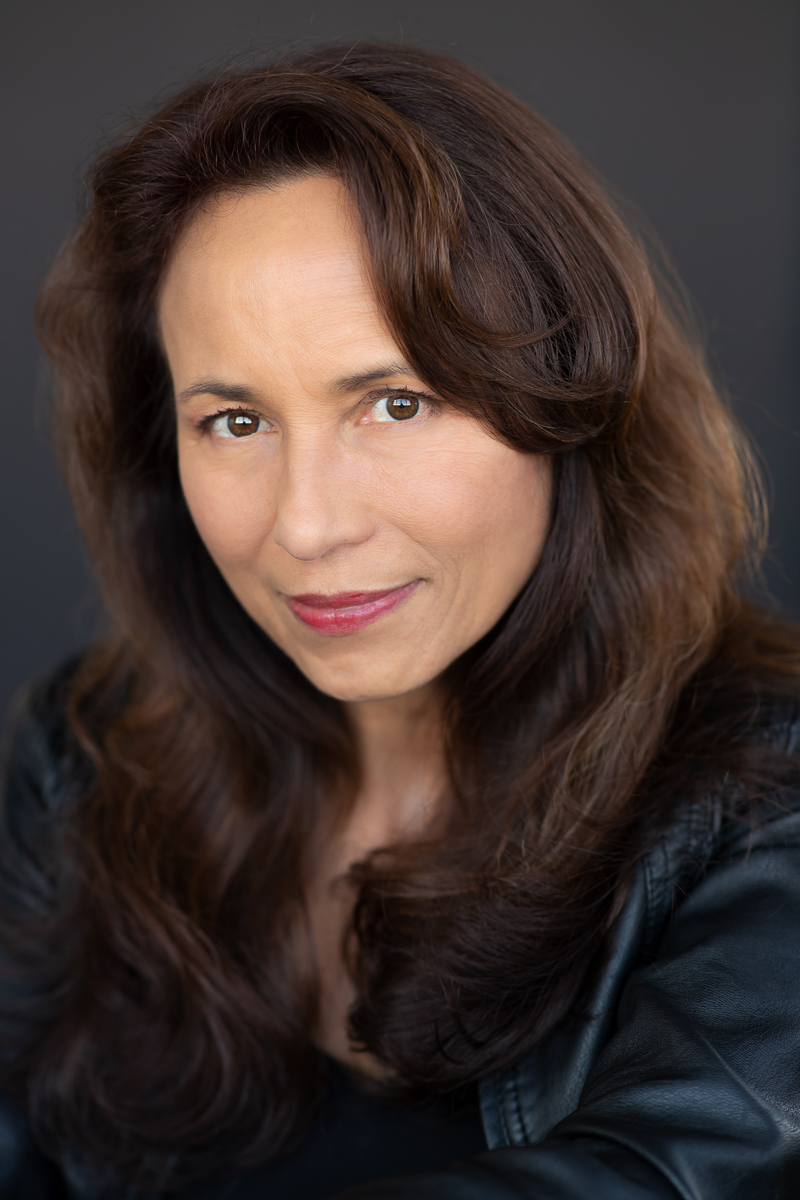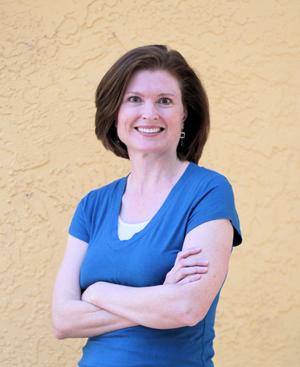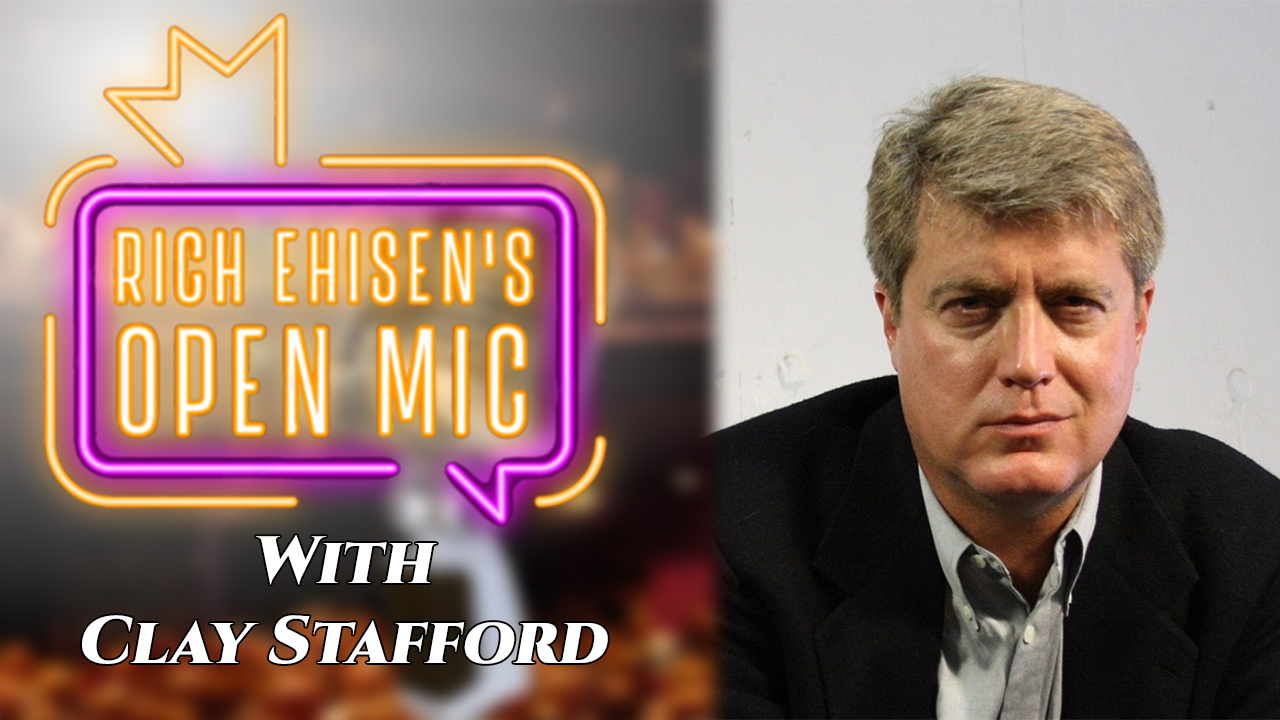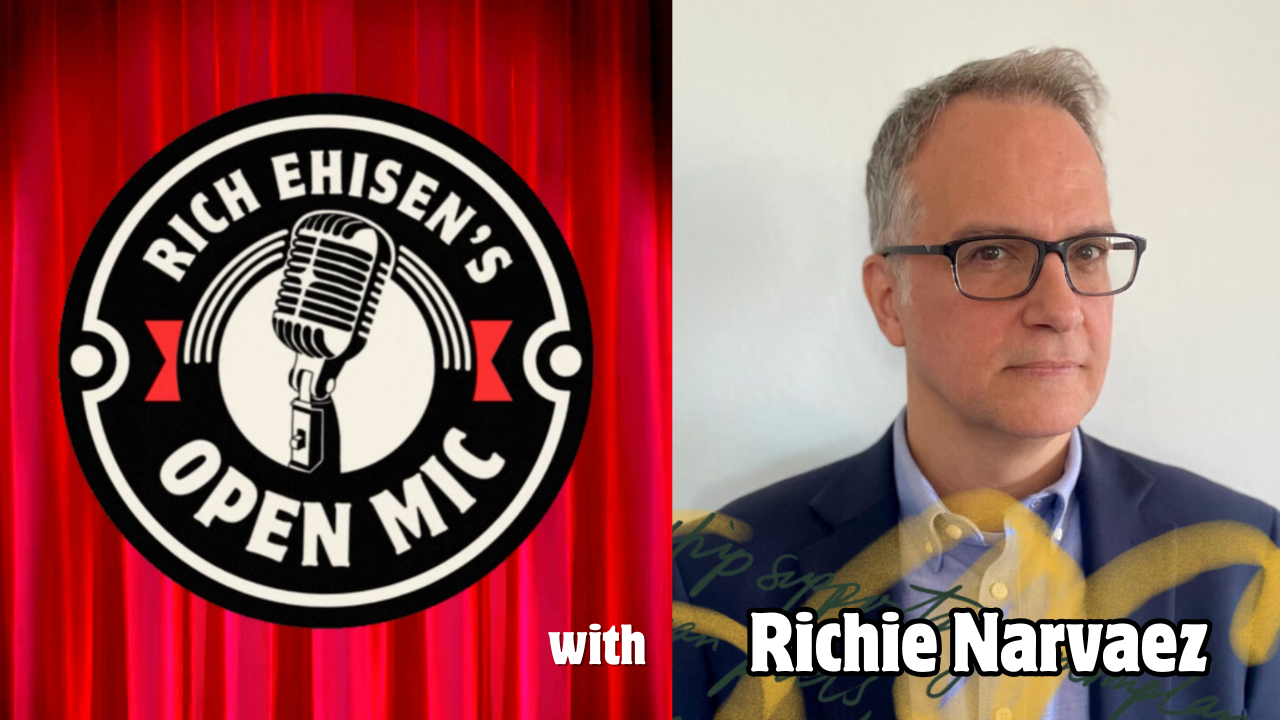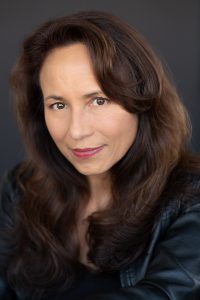 By any measure, Tori Eldridge has had a remarkably diverse career, from Broadway to television and now to awaiting the release of her debut thriller novel, “The Ninja Daughter.” A professional singer, dancer and martial arts expert, she is also proving adept at the written word. I spoke with her recently to talk about her new book, cultural biases in publishing and the life of a modern day ninja.
By any measure, Tori Eldridge has had a remarkably diverse career, from Broadway to television and now to awaiting the release of her debut thriller novel, “The Ninja Daughter.” A professional singer, dancer and martial arts expert, she is also proving adept at the written word. I spoke with her recently to talk about her new book, cultural biases in publishing and the life of a modern day ninja.
Open Mic: Tell me about the “The Ninja Daughter.”
Eldridge: “The Ninja Daughter” is a cultural thriller about a young woman who dedicates herself to becoming a modern-day ninja after the murder of her sister. It’s set in Los Angeles, a very multi-cultural setting, and she a very multi-cultural person. My protagonist, Lily Wong, has a Hong Kong Chinese mother and North Dakota Norwegian father and she is greatly influenced by her Japanese sensei. So she has all these cultural things going in the midst of this gritty urban suspense.
Open Mic: The word “ninja” has been pretty abused in our culture. It conjures up a lot of stereotypical images in most of our heads. Are you concerned it might impact how people see your work?
Eldridge: I’m sure it will and that’s part of my reason for wanting to write this book. When you say that the word ninja has been abused, I would rather say it’s been sensationalized. There are a lot of stereotypes and erroneous notions floating about. From what I’ve seen, ninja has become a catch phrase for anybody who is really exceptional at what they do, which is all well and good, but when I use the word ninja, I’m really talking about somebody who has dedicated themselves to training in the ancient art of the ninja. I hold a fifth-degree black belt in To Shin Do Ninjutsu, and so I have devoted a fair amount of my life to this amazing path. To call it a martial art just doesn’t seem enough to me. It is so all encompassing in its material sense, in its esoteric sense, in its way of movement, its way of walking in the world, its way of living as a fluid, dynamic protector of people. I’m a modern day ninja. So when I say my protagonist Lily Wong is a modern-day ninja, I truly mean it. I am a modern-day ninja. You would be surprised how many of us are out there helping in their small ways, or in some cases their large ways, to make their community feel more protected, more empowered. That’s a big part of what I want to convey in this book.
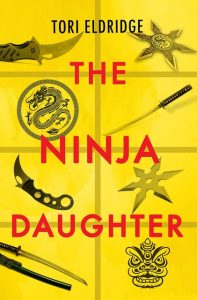 Open Mic: You are one of three debut authors under the new Agora imprint, which is part of Polis and which is also focused on bringing a more diverse voice to crime fiction. How has that experience been for you so far?
Open Mic: You are one of three debut authors under the new Agora imprint, which is part of Polis and which is also focused on bringing a more diverse voice to crime fiction. How has that experience been for you so far?
Eldridge: I couldn’t be more thrilled about being one of the launch authors for Polis Agora. They’re incredible. Jason Pinter and Chantelle Osman bring so much appreciation, awareness, and proactive energy into publishing and championing unusual characters in crime fiction. As a reader, I love books that take me into new environments and new cultures, that open my eyes to new perspectives and new points of view. That’s what Polis Agora is going to do for readers everywhere.
Open Mic: Diversity and the concept of “own voices” has become a major topic of discussion in publishing. What is your sense at the moment of the actual, real opportunities for culturally diverse writers such as yourself?
Eldridge: I think the opportunities for multi-cultural authors and multi-cultural themed fiction couldn’t be better. This is an amazing time of opportunity for us. Publishers are more willing than ever to publish new voices. Readers are thirsting for new stories, new characters, and new points of view. More than ever, readers are seeking the kind of stories that I and other own-voice authors are writing.
Open Mic: One topic within that issue is of authors of one gender or cultural experience writing characters of another gender or cultural background. Does it bother you when you read a white male author writing a character of color or a woman?
Eldridge: It doesn’t bother me in the least when an author writes characters outside their culture or gender as long as they do it well, do their research, and give their story an authentic voice. A fiction writer writes fiction. We create. To be limited to create only that which we have personal experience would be akin to saying we can only write memoirs. And who wants to do that?
My book, “The Ninja Daughter,” is about a character named Lily Wong, who is a Chinese-Norwegian modern-day ninja. Well guess what? I am a Chinese-Norwegian modern-day ninja, so you really can’t get much more own voices than that right? But at the same time, I write a lot of other cultural fiction. “The Ninja Daughter” is not actually the first book I’ve written, it’s just the first book that was sold. I’ve written another novel that delves into Brazilian heritage and the spiritualism of Brazil, and the sequel of that is set in Bali. For those books I submerged myself in years of research, reading, listening, watching, travelling, and interviewing. I have a deep fascination for world cultures and religions. So if my passion for that knowledge leads me into stories where I can immerse myself – sometimes for years – into someone else’s way of life and gain that ring of authenticity and appreciation, isn’t that a wonderful thing? As a reader, when I read authors who can do that – when I read a man who can write a great, strong, complex, multi-dimensional female protagonist and not just a male character with a women’s name, for example, or a woman who can write a male protagonist that resonates authentically with her male readers – I say bravo. And if a writer can step out of their own culture and write authentically about someone else’s and inspire empathy and understanding in the process? Brilliant!
Open Mic: You are an expert in martial arts, weaponry and self-defense. But you’ve also been a professional singer and dancer and actress. How has that blend of diversity in background, skill and experience helped to shape you as a writer?
Eldridge: I think any life experience that increases the emotional depth of a writer is helpful because it deepens our empathy of the world and gives us something of value to say. My career as a performer took me to Chicago, New York, Boston, D.C., and Los Angeles. Living in these cities, combined with growing up in the cultural melting pot of Hawaii, opened my mind to different perspectives, which is an important attribute for a writer. My acting experience has also given me an advantage with dialogue. I have this kind of theatrical way of locking into the writing and finding these voices, and that really comes from acting and screenwriting. I embody my characters as I would if were performing a role, feeling their emotions, taking on their mannerisms, speaking their words. I have to be careful, though, because sometimes those emotions stick with me – which is great if I’m writing some hot and sexy scene but not so great when I delve into darkness.
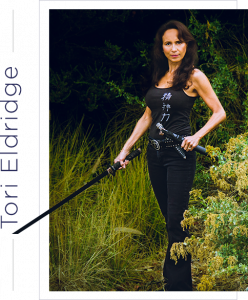 Open Mic: A mutual friend of ours, Jonathan Maberry, recently told me that short stories are a great way to get unstuck when you’re working on a novel. Do you ever get stuck, which we generally call writers block? How do you get out of it?
Open Mic: A mutual friend of ours, Jonathan Maberry, recently told me that short stories are a great way to get unstuck when you’re working on a novel. Do you ever get stuck, which we generally call writers block? How do you get out of it?
Eldridge: I wholeheartedly recommend that novelists also write short stories, especially when we’re stuck and consumed by a particular project. Writing short stories helps hone our skills. In a relatively short time, we can come up with a new idea, bring it through to fruition, and get it out there in the world. This short term influx of creative energy and productivity can break through our block and put us out into the world. Short stories are also an effective way to build a relationship with readers and our writing community. But they’re not easy to write. I’ve always thought of myself as more of a novelist kind of a writer, so when I first started writing short stories, it was a real challenge to figure out where I needed to begin, what part of the story I needed to tell, and when I should stop so I could leave my readers with just enough to feel satisfied but intrigued. Fortunately, I had some great mentors, people like Jonathan Maberry and Thomas Monteleone.
Open Mic: Writers also deal with so much rejection and self-doubt. How do you deal with these issues?
Eldridge: You can’t be a writer, actress, singer, dancer, or anything creative without getting a door slammed in your face all the time. To accept that is freeing. As a performer, I went on auditions every week sometimes for months before getting one gig that lasted a year, a week, or even just a day. And the cycle never stopped. The endless rejections can wear you down. To combat emotional fatigue, I learned to view each audition as an opportunity to perform regardless of whether or not I booked the gig. I try to view writing submissions in the same way.
I think a lot of new writers don’t realize how long a process it is or how much rejection they’re going to face. They don’t realize that every step of the way is another starting line to another marathon. Getting that agent, getting that publisher, staying on the top of the charts if that’s where you are in your career. Every new achievement is a new starting line. My experience in martial arts helped me to embrace this. As a fifth degree black belt, I learned that every new level of achievement marks a new beginning for another journey. That said, emotions are powerful, and sometimes I forget. So when self-doubt and depressing emotions arise, I try to get more disciplined and focus on the work. I also lean on my friends. A lot! So that’s what I would say to somebody who is struggling with rejection: focus on the process, enjoy the journey, and talk with other writers. It’s encouraging to hear about their struggles and know you’re not alone and that all of this is part of the writer experience.
Open Mic: What is more difficult for you – character or plot?
Eldridge: Plot is far more difficult. I’m easily immersed in character, but plot is challenging, which is probably why I’m such an obsessive outliner. I don’t trust that my story will come if I just start at the beginning and write. So I begin with a premise, character, or sometimes a premise and a character, as was the case with “The Ninja Daughter.” From there, I expand outwardly—adding more plot, characters, details—until I have a chapter-by-chapter outline with summaries. I don’t stick with the outline, but it gives me direction, pacing, and a tremendous amount of comfort. Outlining is a deeply creative and essential process for me.
Open Mic: Social media is pretty much a requirement for any author today. How do you feel about social media? Do you love it, hate it, or somewhere in between?
Eldridge: I really enjoy social media because I look at it as a chance to engage with people that I can’t see on a day to day, or even sometimes an annual basis. It gives me a chance to build new relationships and deepen old relationships. I think of it as relationship building and engagement, and I think because I look at it in that way, I really enjoy it.
Open Mic: I like to end with what I hope is a fun question. If I could put you together for a conversation with just one of the following people, who would you choose and why? Your options are: Bruce Lee, JK Rowling, or Sir Arthur Conan Doyle.
Eldridge: I’ve got to go with Bruce Lee. How could I not? Here is a person who was so incredibly dedicated and disciplined and focused, and yet, at the same time, managed to be continuously fluid. He was always open to new information and to better ways of doing things. I would really love to just fix him dinner and have a nice long conversation.

